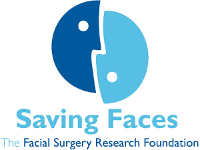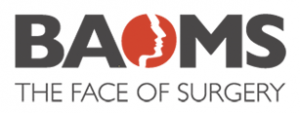| Title | Can genomics predict dysphagia after head and neck radiotherapy? | |
| Acronym | GRAD | |
| Study Type | Retrospective Case-Control Study | |
| Status | Closed to recruitment; in follow-up | |
| Funding | The British Association of Oral and Maxillofacial Surgeons, The John Anderson Cancer Research Trust, Saving Faces – The Facial Surgery Research Foundation | |
| Ethics | NRES Committee South East Coast – Surrey, Reference: 14/LO/0429 | |
Background
Radiotherapy is an essential treatment approach in head and neck cancer. Many patients are offered radiotherapy or chemoradiotherapy following successful surgical tumour resection, but there are many complications associated with this treatment, and there is little evidence to determine if adding radiotherapy in this situation will give any survival benefit. Up to 83% of patients who are treated with radiotherapy for head and neck cancer report some degree of swallowing problems; and many patients will need to be fed through a gastronomy tube. This may have a negative impact on a patient’s quality of life. High doses of radiation can also decrease the blood supply to the jawbone, which may result in the death of bone tissue. This relatively rare condition is called osteoradionecrosis (ORN) and is a serious complication of radiotherapy or chemoradiotherapy.
Research suggests that one or more genes may be linked to the risk of post-radiation complications in the head and neck. We have already studied one gene and found that patients with one variation of this gene had an increased risk of ORN, showing that certain individuals may be genetically predisposed to radiation hypersensitivity and damage. There may be several further undiscovered genetic factors associated with radiation hypersensitivity. We currently have no means of predicting how individual patients will react to radiation, and therefore we propose to conduct a genome wide association study to test a much larger collection of genes, and determine whether we can predict swallowing and mouth opening problems. If the genes that can predict for severe radiation complications in head and neck cancer patients can be identified, then in the future, treatments for head and neck cancers may be tailored to the patients’ genetic profiles and help to minimise the adverse effects of radiotherapy.
Aims
This study aims to compare the genomic profiles of patients with and without severe swallowing difficulties following radiotherapy for head and neck cancer, and to identify genetic factors associated with a higher risk of developing severe complications. We also aim to establish the prevalence of patients suffering from complications after having radiotherapy, and to determine if genetic tests can be performed on DNA obtained from a simple saliva test on this group of patients.
Interventions
Head and neck cancer patients will be identified from medical records by the clinical care team, and eligible participants will be asked to complete a short self-assessment questionnaire about their swallowing function. Swallowing function scores will be used to identify two cohorts of patients, and 100 patients with severe swallowing impairment and/or are feeding tube dependent will be matched with 100 control patients who have average swallowing function and do not require supplemental feeding. Those patients who are in either of the above groups will be invited to attend a research clinic where they will be asked to complete a quality-of-life questionnaire. Blood and saliva samples will be collected for the genetic analysis, and patients will also be asked to complete the Relative Saliva Swallow Test, which is a simple test to check the ability to voluntarily swallow repeatedly.
Outcomes
The primary outcome is the association between genetic variants and severe radiotoxicity in head and neck cancer patients. The secondary outcomes are the prevalence and degree of swallowing problems as determined by scores on the Sydney Swallowing Scale Questionnaire, and the proportion of saliva samples that are suitable for genetic analysis.
Inclusion Criteria:
- Patients ages 18 years and over (no upper limit).
- Patients who have been treated for primary head and neck cancer with radiotherapy or radio-chemotherapy.
- Patients who are between 1 and 6 years post-treatment.
Exclusion Criteria:
- Those patients not deemed able to give informed consent.
- Patients who have had thyroid cancer.
- Patients who have had head and neck surgery
Trial Design:
This is a retrospective case control study. Permanent problems with swallowing are likely to occur within 1 year of treatment. Therefore patients who are 1 to 5 years post radiotherapy or chemoradiotherapy treatment for head and neck cancer will be eligible for the study. Patients who have had surgical treatments will be excluded as the sequelae of surgery could confound or mask the complications of radiotherapy.
This study has two phases. In the first phase, a member of their clinical team will screen patients for eligibility and informed consent will be sought by post. Patients will be asked to complete a self-assessment of swallowing function including the Sydney Swallow Questionnaires (SSQ) and questions about PEG feeding, limited mouth opening and ORN and return it with their signed consent forms. Swallowing function scores will be used to identify two cohorts of patients who will be matched as far as possible for tumour stage & site, and type of radiotherapy and chemotherapy received.
The 2 cohorts would be:
- 100 Cases hypersensitive patients who are feeding tube dependent and/or have poor (high) SSQ scores.
- 100 Controls patients who do not require supplemental feeding and/or have average (mean) or above average swallow function as assessed by their scores on the Sydney Swallow Questionnaire.
In the second phase of this study, patients who are in either of the above groups will be invited to attend a research clinic to provide saliva and blood samples for the genetic analysis. Patients’ will also be asked to complete a dysphagia- specific quality-of-life questionnaire; the M. D. Anderson Dysphagia Inventory (MDADI), and complete a Repetitive Saliva Swallowing Test.
From patient DNA, 700,000 small nucleotide polymorphisms (SNPs) will be analysed, and common polymorphisms, which could predict an association between specific SNPs and radiation sensitivity, will be identified. All individuals in each group will be genotyped for the majority of common known SNPs.
Chief Investigator
Mr Andrew Lyons – Consultant Oral and Maxillofacial Surgeon, Guy’s and St Thomas NHS Foundation Trust
Co-investigators
- Professor Iain Hutchison – Consultant in Oral and Maxillofacial Surgery, St. Bartholomew’s Hospital and Chief Executive, Saving Faces – The Facial Surgery Research Foundation and Director of NFORC
- Fran Ridout – Research Manager, Saving Faces – The Facial Surgery Research Foundation
- Patrick Dubious – Consultant Gastroenterologist, King’s College NHS Foundation Trust
- Teresa Guerrero Urbano – Consultant Clinical Oncologist, Guy’s and St Thomas’ Hospital NHS Trust
- Amen Sibtain – Consultant Clinical Oncologist, Barts Health NHS Trust
- Catherine Lau – Registrar in Oral and Maxillofacial Surgery, Royal London Hospital
For further information, please contact Fran Ridout
Email: info@nforc.co.uk


